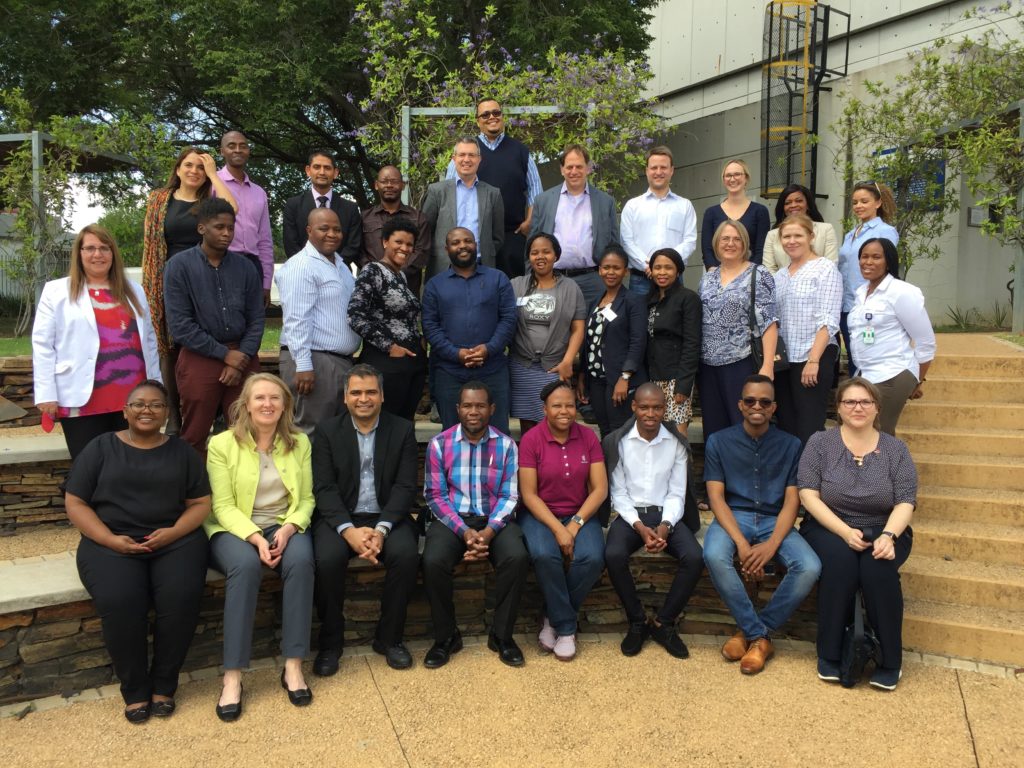November 14, 2018
In continuing and expanding its training programs for diplomats and practitioners from different regions and countries in nuclear nonproliferation and disarmament issues, CNS partnered this year with the Department of International Relations and Cooperation (DIRCO) of the Republic of South Africa to offer a one-week intensive course to 30 participants from South Africa. The majority of participants in the course—which ran from November 5–9, 2018—are DIRCO employees, stationed either in Pretoria or at various UN locations: New York, Vienna, and Geneva. In addition to diplomats, the group included representatives from the Department of Energy, Nuclear Energy Corporation of South Africa (NECSA), South African Non-Proliferation Council, International Committee of the Red Cross, Council for Geoscience, and International Network on Small Arms.

Intensive Short Course participants
The course provides a unique opportunity for South African specialists to study and discuss the history, challenges, and new opportunities facing the nuclear nonproliferation and disarmament regimes and interact with leading international and South African experts in the field. Among the speakers and panelists from CNS are Deputy Director Elena K. Sokova, Senior Fellow Miles Pomper, and Senior Research Associate Andrea Berger. Other senior experts include Ambassador Elayne Whyte Gómez Permanent Representative of Costa Rica to United Nations organizations in Geneva (via Skype); Tariq Rauf, former Head of Verification and Security Policy, Office of the Director General, International Atomic Energy Agency; David Jepsen, Coordinator, International Monitoring Division, Comprehensive Nuclear-Test-Ban Treaty Organization; Johann Kellerman, Director, Disarmament and Non-Proliferation, DIRCO; Professor James Larkin, Director of Radiation and Health Physics Unit, University of the Witwatersrand, and others.
In addition to lectures and discussions, the participants toured the Pelindaba nuclear site and visited SAFARI-1 Research Reactor, Radioisotopes production facility, and the NECSA Learning Academy.
The participants unanimously underscored the high value of the course in contributing to their knowledge and understanding of nuclear disarmament and nonproliferation issues and “broadening their understanding of political, technical, and practical implementation of nuclear nonproliferation, safeguards, and disarmament.”
The course was made possible by the generous support of the Carnegie Corporation of New York and the John D. and Catherine T. MacArthur Foundation.
